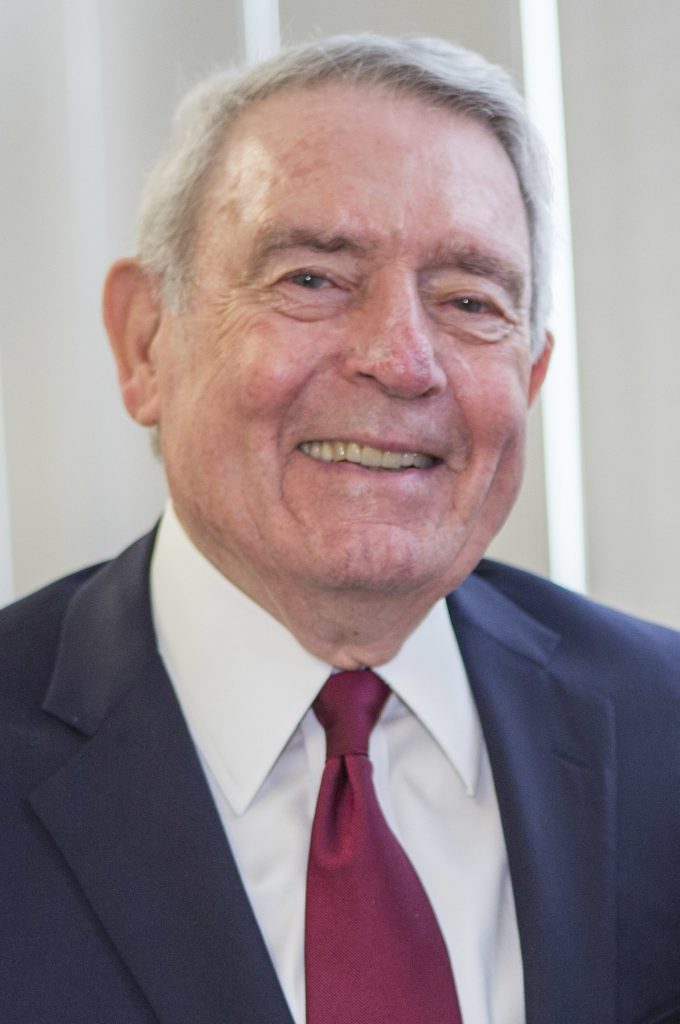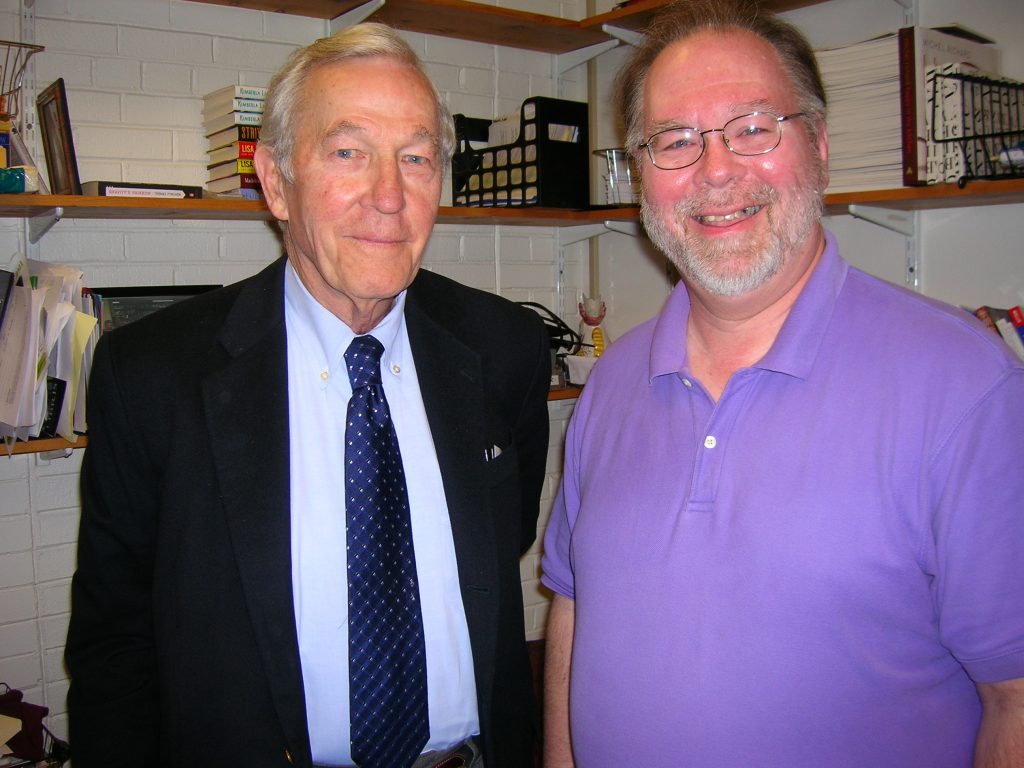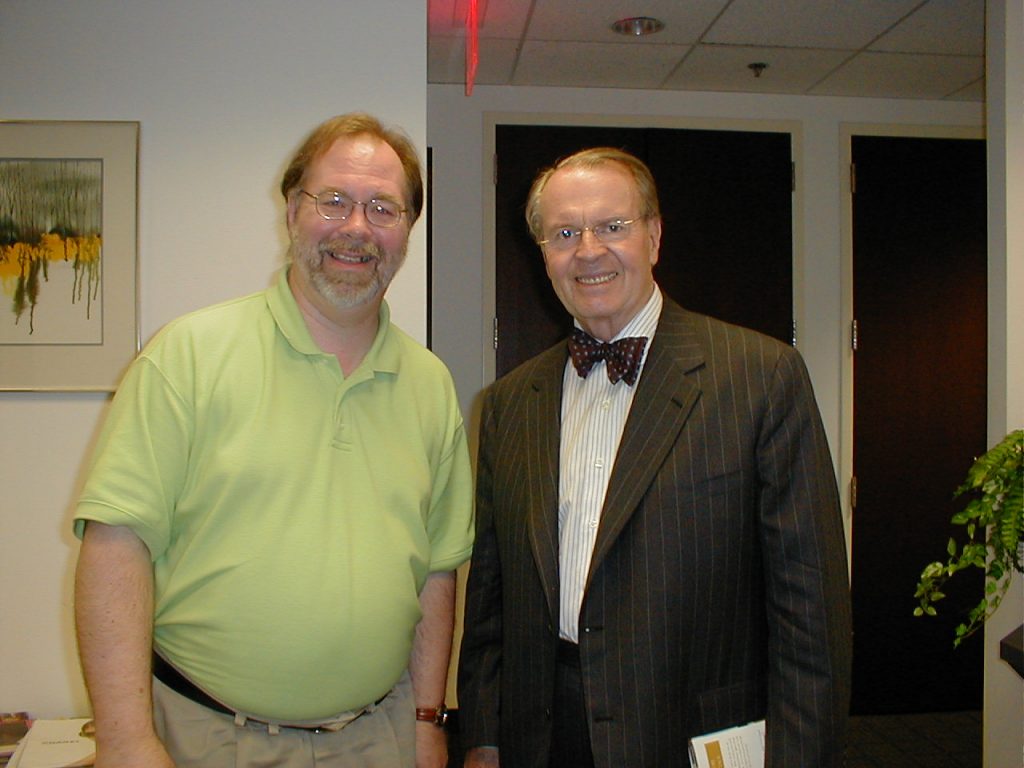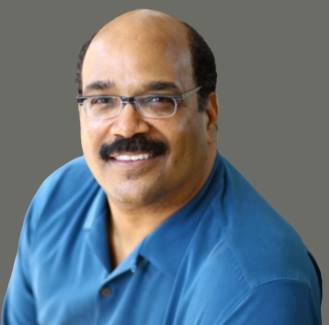
Dan Rather has been a fixture in American journalism since the early 1950s.
As a young boy, growing up in Texas Rather became enamored of heroes like Edward r. Murrow, and vowed to become a journalist himself someday.
After establishing himself as a local reporter in the ’50s, Rather joined CBS News in the early 1960s. He was promoted to White House correspondent, and famously had run-ins with President Richard m. Nixon.
In 1981 Dan Rather succeeded Walter Cronkite as anchor of the CBS evening News, a position he held for the next 24 years. His tenure in the anchor chair was not without its controversy and rather occasionally found himself at the center of the news.
In 1976 he wrote a best-selling book about the network news business, called The Camera, Never Blinks. And in 1994 he wrote its sequel, The Camera Never Blinks Twice. And that’s when I had one of my several interviews with him.
So here now, from 1994, Dan Rather.
Dan Rather is 92 now and still covering the news. Since 2021, he has been writing the newsletter “Steady” on the Substack platform.
You may also like these episodes:
Jim Lehrer
Charles Osgood


